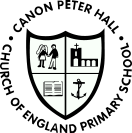History at Canon Peter Hall is designed to ensure progression in children’s development of historical knowledge and concepts through the lens of a Historian. Children will develop a chronological understanding of; the order of periods of history and THE EVENTS WITHIN THESE PERIODS. At the end of each unit pupils will create an expert outcome and this will enable us to assess their learning and understanding. A large visual historical timeline is accessed by all pupils in a highly prominent corridor. The timeline will be the focal point during retrieval of prior knowledge and the introduction of the current historical unit. This will also give pupils opportunities to see where their unit ‘fits’ into the Big Story (chronology). The disciplinary concepts (historical lens) are promoted by core questions that underpin each historical unit of work. These enable pupils to develop their historical understanding and take a critical approach to both substantive knowledge and substantive concepts.

